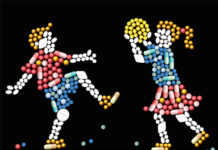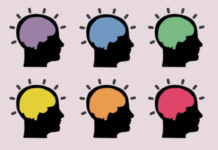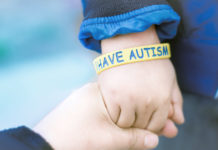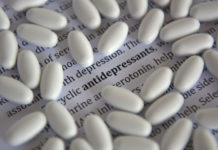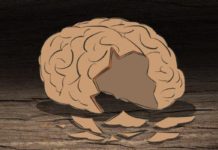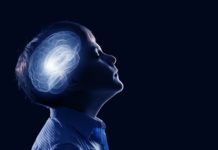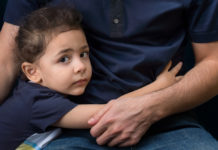Is an Ominous New Era of Diagnosing Psychosis by Biotype on the Horizon?
When former NIMH chief Dr. Thomas Insel speaks, people listen. Dr. Insel famously criticized the DSM a couple of years ago for its lack of reliability. He notably broke ranks with the APA by saying there were no bio-markers, blood tests, genetic tests or imaging tests that could verify or establish a DSM diagnosis of schizophrenia, bipolar or schizoaffective disorder. However in a new article he announces research that claims to have found bona-fide physiological markers that identify specific "biotypes" of psychosis. This system could, purportedly, identify a person as possessing a specific biotype of psychosis, instead of a DSM-category diagnosis.
Q&A: Is My Child Being Overdrugged?
My eight-year-old daughter has diagnoses of ADHD, depression, anxiety, and ODD. She is taking four prescribed drugs, but she is still suffering and her behavior hasn’t changed much. Her doctor is suggesting adding yet another med. I’m wondering how many drugs are enough? I am starting to think she should go off some of them. I want to trust the psychiatrist, but I’m just not sure anymore.
Study Deems Support, Not Drugs, Best for Youth at Risk of Psychosis
Research by five U.K. universities across multiple sites for up to two years divided 288 young adults (14-35 years) deemed at risk for psychosis...
Seeking Justice
My life flashed before my eyes as my entire medical history over the last decade was rewritten from having a genetic brain disease to being a victim of a medical scam. It was bittersweet, for I realized that I was not sick and dying, but I had been robbed of so many years of my life due to the psychiatrist’s lies. Now I am suing my former psychiatrist for damages.
On the Link Between Psychiatric Drugs and Violence
One of psychiatry's most obvious vulnerabilities is the fact that various so-called antidepressant drugs induce homicidal and suicidal feelings and actions in some people, especially late adolescents and young adults. This fact is not in dispute, but psychiatry routinely downplays the risk, and insists that the benefits of these drugs outweigh any risks of actual violence that might exist.
Not So Rare But Rarely Diagnosed: From Demonic Possession to Anti-NMDA Receptor Encephalitis
Throughout the ages, convulsions, contortions of the body and face, including the tongue, super-human strength, catatonic periods, long periods of wakefulness or sleep, insensitivity to pain, speaking in tongues, and a predilection for self-injurious behaviours have all been offered as physical evidence of possession. The modern day interpretation, however, comes with a plot twist befitting a media spectacle. There is growing consensus in the medical community that many prior accounts of “demonic possession” may have represented original accounts of what is now broadly known as autoimmune encephalitis.
Antidepressant-Induced Mania
It is generally recognized in antipsychiatry circles that antidepressant drugs induce manic or hypomanic episodes in some of the individuals who take them. Psychiatry's usual response to this is to assert that the individual must have had an underlying latent bipolar disorder that has "emerged" in response to the improvement in mood. The problem with such a notion is that it is fundamentally unverifiable.
Trauma, Psychosis, and Dissociation
Recent years have seen an influx of numerous studies providing an undeniable link between childhood/ chronic trauma and psychotic states. Although many researchers (i.e., Richard Bentall, Anthony Morrison, John Read) have been publishing and speaking at events around the world discussing the implications of this link, they are still largely ignored by mainstream practitioners, researchers, and even those with lived experience. While this may be partially due to an understandable (but not necessarily defensible) tendency to deny the existence of trauma, in general, there are also certainly many political, ideological, and financial reasons for this as well.
Soteria Israel: A Vision from the Past is a Blueprint for the Future
In Israel, there is a budding Soteria movement that foretells of a possible paradigm shift in care. The thought is that such care may become a first-line treatment for newly psychotic patients.
Textbooks Provide Misleading Information on the Neurobiology of ADHD
When it comes to ADHD, some researchers suggest that medical textbooks provide inaccurate and misleading information.
Mental Health Professionals Critique the Biomedical Model of Psychological Problems
While a great deal of the excitement about advances in psychological treatments comes from the potential for research in neuroscience to unlock the secrets of the brain, many mental health experts would like to temper this enthusiasm. A special issue of the Behavior Therapist released this month calls into question the predominant conception of mental illnesses as brain disorders.
Individuals with Psychosis Symptoms More Likely to be Victimized
Individuals diagnosed with a psychotic disorder are 4-6 times more likely than the general population to experience victimization.
“I’m Not Going, You Can’t Make Me!”: A Community Approach to School Refusal
Consider an imaginary child called Jack who has been avoiding school as much as possible for a month. Standard practice would be cognitive-behavioral therapy or psychoactive drugs to help Jack deal with his anxiety. But what if Jack's social network instead mobilized to help him regain the role of student?
Neurodiversity is Dead. Now What?
The neurodiversity movement is a public relations campaign that emphasizes the positive qualities associated with some presentations of autism—creativity, increased tolerance for repetition, enhanced empathy, and exceptional memory—while erasing or minimizing the experiences of autistics who are severely disabled.
The Real Myth of the Schizophrenogenic Mother
Acknowledging the role of trauma inflicted by a given individual’s mother is not the same as laying all blame for “mental illness” at the feet of motherhood. Meanwhile, a mountain of evidence has accumulated linking schizophrenia to sexual, physical, and emotional abuse and many other categories of adverse childhood experiences.
Fighting for the Meaning of Madness: An Interview with Dr. John Read
Akansha Vaswani interviews Dr. John Read about the influences on his work and his research on madness, psychosis, and the mental health industry.
Study Investigates Long-Term Effects of Social and Emotional Learning Programs
Social and Emotional Learning (SEL) programs have gained popularity in U.S. schools in recent years. A new study examines the nature and longevity of their impact on students.
And That’s the News from the Department of Psychiatry
In the business of clinical trials, the most valuable commodities are the research subjects. Filling clinical trials is hard, and filling them quickly is even harder. That’s why in 2000 a clinical investigator told the HHS Office of the Inspector General that research sponsors were looking for three things from research sites: “No. 1—rapid enrollment. No. 2 — rapid enrollment. No. 3 — rapid enrollment.”
The Scientism of Autism
Autism is now simply assumed to represent a real, tangible, identifiable ‘thing.’ But no one is asking the obvious question: On what evidential basis can you conclude that autism represents a natural category that can be differentiated from other natural categories? According to the real science, autism should be seen as a fact of culture, not a fact of nature.
New Study Concludes that Antidepressants are “Largely Ineffective and Potentially Harmful”
A new study published in Frontiers in Psychiatry concludes that “antidepressants are largely ineffective and potentially harmful.”
Experts Question the Benefits of Brain Imaging Research for OCD
Two experts—a leading neuroscientist studying OCD, and a psychiatrist specializing in OCD treatment—question whether expensive brain imaging research has added anything to the treatment of OCD.
FDA Approves Using Electricity All Night Long on Children’s Brains
The FDA just approved sales of an electrical device called the Monarch eTNS to be used on the brains of children diagnosed with so-called ADHD. The device “sends therapeutic signals to the parts of the brain thought to be involved in ADHD,” according to the FDA press release. “Therapeutic signals”? Really?
French and American Approaches to “ADHD”
It now looks as if the U.S. approach to mental health is fast gaining purchase in a country that formerly boasted a great, perhaps too sophisticated (Lacan et al.) psychoanalytic tradition, but also a holistic psychosocial tradition when dealing with psychological disturbance in children.
Study Examines Voice Hearing Accounts of 499 Nonclinical Individuals
Researchers look at voice hearing experiences shared by nonclinical samples, exploring these experiences in the general population.
The Invisibles: Children in Foster Care
Millions of current and former foster children experience multiple kinds of trauma, as documented in a six-part investigative series published in the Kansas City Star this month. Too often invisible, these young people deserve our attention and our care.


